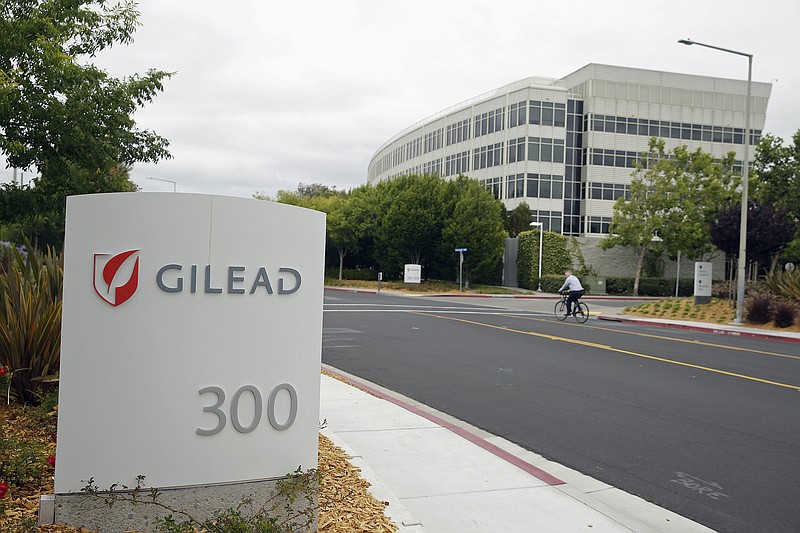PHILADELPHIA - A drug company may have violated the privacy of thousands of people who are taking a medicine to prevent them from coming down with HIV.
Gilead Sciences, the biopharmaceutical giant, sent out a mass mailing in mid-April to people on its antiretroviral drugs, Truvada and Descovy. The drugs are used to reduce the risk of HIV infection, a prevention measure called pre-exposure prophylaxis (PrEP).
On Thursday, the AIDS Law Project of Pennsylvania filed a federal class action suit against Gilead. It claims the company illegally compromised the privacy rights of patients by recklessly mailing the inappropriately marked envelopes after promising confidentiality.
The suit demands that Gilead's HIV Prevention Team immediately stop sending out letters to patients and seeks unspecified monetary damages. It was filed in the Northern District of California. The AIDS Law Project was joined by law firms Berger and Montague and Langer Grogan and Diver.
"We regret that the envelope caused any concerns, and we apologize to anyone affected," Gilead, which is on the forefront of developing a COVID-19 vaccine, said a statement. "However, we deny the assertions in the complaint and will file our response in a timely manner."
The company added that "on discovering that an envelope template usually used for communications with health-care professionals was inadvertently used for the consumer mailer in question, we took immediate action to address it, including to discontinue the use of this particular envelope."
It's not the first time a major American company has breached the privacy of patients on HIV medications. In 2017, the health insurer Aetna sent a letter with instructions on how to fill prescriptions for HIV drugs. The information about the patients' status could be easily seen through the clear window of the envelope.
Aetna settled the resulting class action case for $17.2 million. Each of the 12,000 patients in the class was awarded $645 and had the option to file an additional claim for up to $20,000. That suit also was spearheaded by the AIDS Law Project of Philadelphia along with the co-council of Berger and Montague.
In light of the expensive Aetna gaffe, Gilead's error was "completely dumb," said Ronda Goldfein, executive director of the AIDS Law Project.
"After the Aetna case you'd think if you were an entity that holds confidential information, you'd redouble all your efforts to prevent careless mistakes," Goldfein said.
People who received Gilead's recent letter were participating in the company's patient-assistance program.
When taken daily, studies have shown that PrEP reduces the risk of getting HIV from sex by about 99%, according to the Centers for Disease Control and Prevention. Gilead's Truvada and Descovy are the only drugs approved by the FDA for PrEP.
"It's a great program," Goldfein said. "But people didn't realize that by accepting the discount it provides they'd be putting their privacy at risk."
Goldfein said an Alabama man was "mortified" when the envelope marked with "HIV Prevention Team" in bold red lettering turned up in his workplace mailroom.
An Indiana man similarly was shocked when he received the same mailing. Goldfein said the Indiana man is so protective of his personal information that he fills his HIV-related prescriptions at a different pharmacy chain from where he gets his other medications.
"In the Aetna case we saw some immediate direct harm to patients," Goldfein said. "It impacted their families, their housing and their jobs. It created a lot of anxiety for fear of who now had access to their confidential information.
"Those folks now are terrified when the mail comes."
